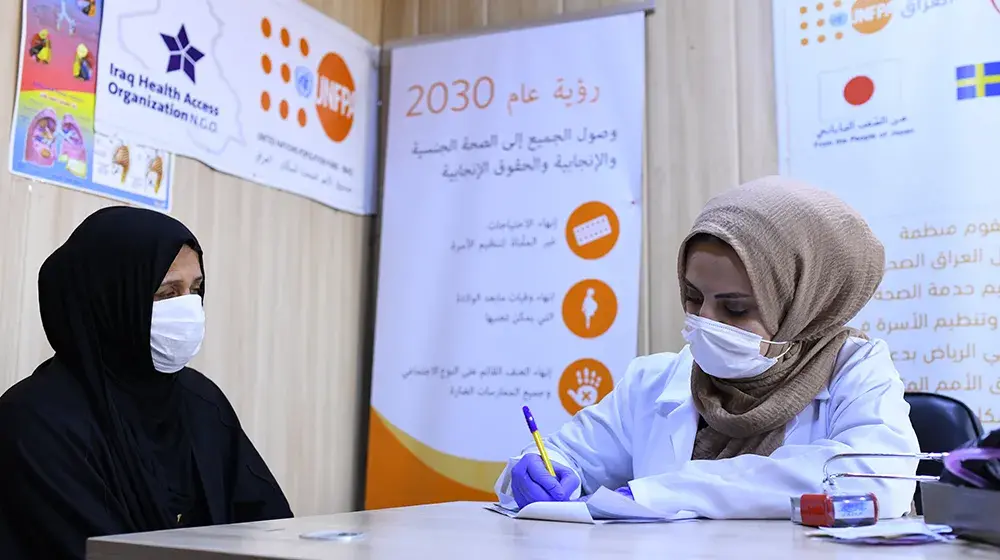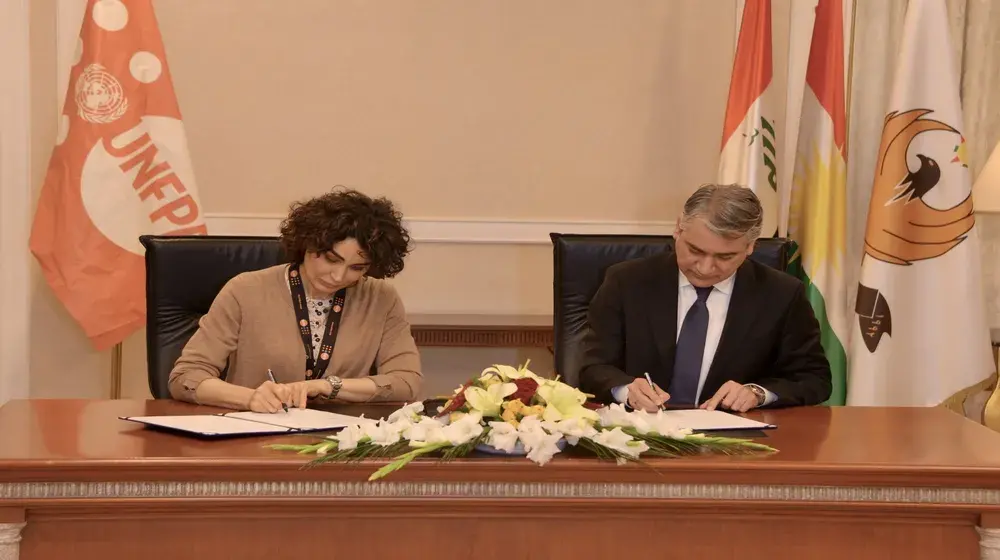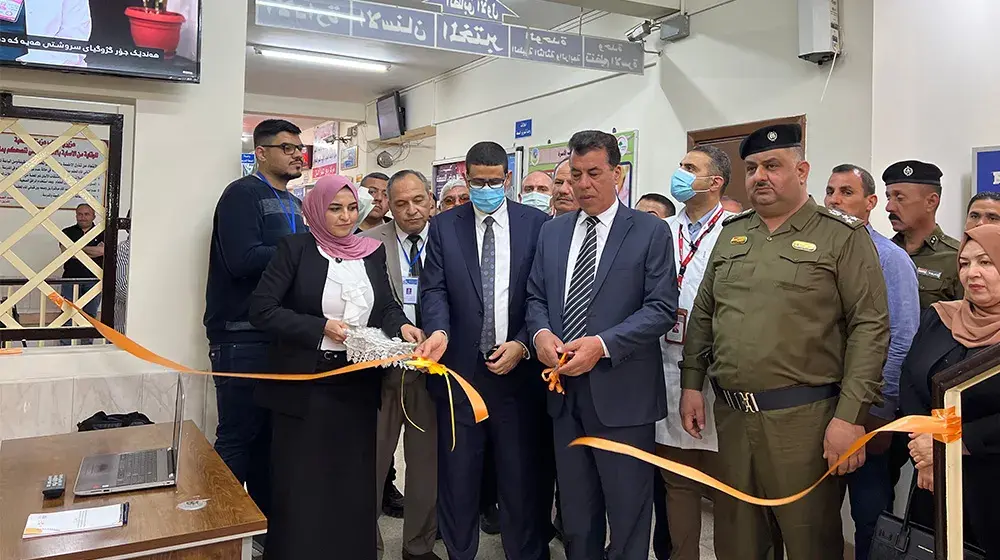SUNUNI, NINAWA/(IRAQ) — Back home after almost two years of displacement, women and girls in Sununi, the recently-liberated town from the Islamic State (IS), continued to experience social exclusion. Their anguish came to an end only when they were provided with a safe venue that made it easier for them to gather and learn new skills.
Sununi, a sub-district of Sinjar district in Ninawa Governorate in North of Iraq, was home to more than 120,000 individuals before being controlled by the Islamic State (IS) in August 2014 who were leading a normal and happy life.
After the fall of the city into the hands of the IS, its residents escaped seeking a safer haven. Hundreds of lives were lost and the main infrastructure for the basic services was severely compromised, which devastated public services, especially health and education. Following the liberation of this area, only 5,000 families including more than 17,500 women and girl returned to their homes in Sununi.
UNFPA Immediate Intervention
It was soon after Sununi was freed, the United Nations Population Fund (UNFPA) in Iraq upscaled its interventions in the area by establishing a women’s safe centre to reach out to women and girls in need of psychosocial support in the aftermath of the hardships they have gone through when IS took over their homes.
For girls who recently returned with their families, going back home despite the lack of services and facilities was challenging, but it was the only choice they had after experiencing difficulties in displacement.There was basically nothing young girls could do over the past two years and having no access to schools or any sort of education made their lives harder.
At present, young girls in Sununi said they finally have a place that feels warmer than home. Suha (changed name), one of those girls said:
"I suffered from depression since the terrorist group took over the city… my dream of becoming a doctor was shattered… no hope of a better future".
But, “when this facility was established, I was encouraged to leave my home, meet new girls who have been through the same experience and above all learn new skills such as hair dressing”. The 16-year old Sununi resident said she and two of her younger sisters come to the three-room facility on daily basis.
“Our home is almost eight kilometres away from the Women Centre in Sununi, which made our father hesitant to let us go to the centre. But when he started to notice the positive impact of being here on me and my sisters, he started driving us every day to the centre to make us happy”, Suha said, adding that talking to social workers in the centre also helped her get over of her depression and provided her with sense of security she longed for.
Nadeen (changed name) experienced the same positive impact. “I had nothing to do at home... no school to go to and no enough money to go to the nearest safe governorate to do some activities. I suffered a lot,” Nadeen said. For the 17-year old girl, meeting new people at the UNFPA supported space provided her with hope for a better future. Her sister, she added, came to the centre before her and “she encouraged me to join. I do not regret that and I will motivate other girls in my neighborhood to come”. “There is life here,” Nadeen concluded.
A third beneficiary described the centre as a “lifesaving facility”.
“I had several issues back home. I got the support I was looking for here,”
said Aman (changed name), who was talking to one of the centre’s social workers without further elaboration on the problems she had with her family. Still, the 15-year old Sununi resident said losing the chance to go to school for two years is another reason for her social exclusion and she was wondering how to make it up and resume her study again.
Now, though she still dreams of going back to school, Aman said she is learning hair dressing and cloth design at the UNFPA supported centre, which helped her mingle with others again and forget about her unmet dreams. “I am comfy… meeting new people, who helped me get over my sufferings, and start over,” Aman added. Aman noted the skills she is learning at the centre are not a waste of time. "I need to help my father with the house expenses and I will start working with what I have learnt after completing the training courses”.
“Feeling the pain”
Tarkia, director of the women safe space, herself suffered from the acts of IS and their impact on her and her family. Tarkia, lost her fiancé who was shot by the terrorist militia, and had to flee her university in Mosul for some time to seek refuge in a safe place. Thus, Tarkia said, whatever the girls who come to centre suffer from, “I know what they talk about… I feel their pain”.
“I always encourage them to be patient and they will be able to overcome the obstacles they have been through,” the 26-year old social worker said.
UNFPA and its partners provide crucial psychosocial support for women and girls during emergency situations to help them overcome such difficult experiences. Since UNFPA established the women safe space in Sununi, some 500 women and girls benefited from its services that include psychosocial support, skill training and distribution of dignity kits.
"We Need More"
Elyas Hataher Ravo, head of Sununi community council said, the council members were concerned when the idea of establishing women safe space was initiated by UNFPA and partners. But now, “We want UNFPA to expand its services, and reach other women and girls who live in the outskirt of Sununi,” Elyas said during a meeting with UNFPA officials few weeks after running the centre.
He added that the women safe space is a very important project, as “women here need psychosocial support and this is the only area that provides them with this support they need”, Elays explained.
“We need these services to be expanded as many residents are expected to return to Sununi soon and there will be more pressure on this facility”.
By: Khetam Malkawi




